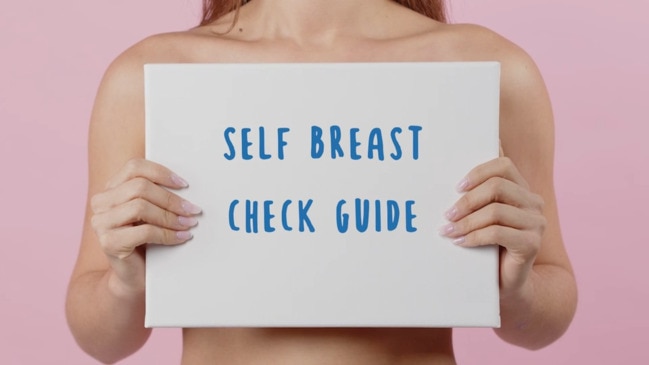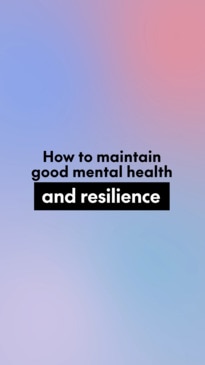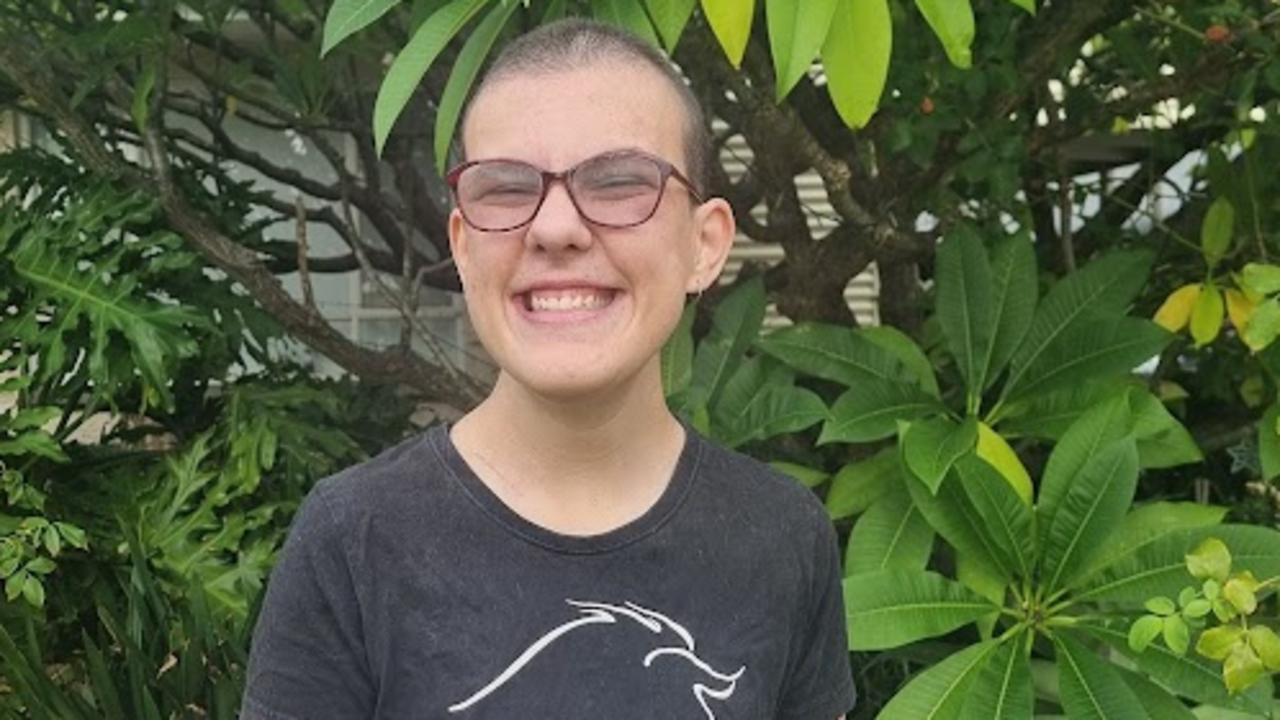Is holistic psychology the new frontier in mental health?
We’re changing the way we look at well-being

Lifestyle
Don't miss out on the headlines from Lifestyle. Followed categories will be added to My News.
Over the last decade or so, there’s no question that the way we consider healthcare has shifted exponentially. Here’s what you need to know about the latest holistic approach.
While once upon a time we would find ourselves sitting in our GP’s office with a bunch of mismatched symptoms, hoping for a simple diagnosis that could be ‘cured’ with some prescription medication and a few days off work – we now, thankfully, consider our health and well-being more holistically.
We understand that while we may present with physical symptoms, these could, in fact, simply be signposts for something deeper or an ailment that’s a little more nebulous to articulate.
But while this holistic approach to our health is wonderful, when it comes to our mental well-being, we don’t seem to approach it in quite the same way. The good news is, a concept that’s gaining momentum online could mark a new frontier in mental health: holistic psychology.

“We have come a long way with a combination of Western and Eastern medicine modalities, naturopathic and complementary therapies and holistic lifestyle interventions,” says Holistic Psychologist and Founder of Holistic Psychology Centre, Sonja Plecas.
“Though it seems even with all of the positive mental well-being advocacy and the popularity of taking a holistic approach to our lifestyle and well-being, there is still some form of shame and failure connected to seeing a psychologist. It’s as if we think: if I have to see a psychologist then there must be something wrong with me!”
“There also still appears to be so much contradictory conditioning in our society from our family system to the schooling system to social media that teaches us that “we must be strong and we must fit in” or “we can have everything we want if we just pull our socks up and work hard enough”,” says Plecas.
“But as humans, we are wired to connect and fit in for survival and this naturally sets up a need for comparison and a conditioning that “we are not good enough” if we are not keeping up with the Joneses.”

“Most people are comfortable seeing a physio if they have a sore back or seeing a dentist if they have tooth pain, so why are so many people still so uncomfortable seeing a psychologist for their mental health and wellbeing?” asks Plecas.
“Women, in particular, have been tagged by society as the ones who are more open to seeing mental health support over men (although this is not always the case) – but there are still many women who remain resistant out of fear that they will be stamped with a mental illness diagnosis and be forced to take medication.”
This is why approaching our mental healthcare more holistically, could not only help to break down this underlying societal stigma, but also help us to care for our emotional wellbeing in a much kinder, more open-minded way.
“For some, there remains an old-fashioned stigma of a psychologist in a white coat with a clipboard taking a cold clinical approach, but thankfully nothing could be further from the truth,” says Plecas. “As a Holistic Psychologist, I can confirm that this is rarely seen these days and only belongs in Hollywood movies!”

So, what is Holistic Psychology exactly?
“The philosopher, Aristotle, summed it up best with his phrase: the whole is greater than the sum of its parts. And Holistic Psychology is an approach that integrates all aspects of an individual, including the brain, body, mind and spirit,” explains Plecas. “Traditional psychological methods take a more clinical and reductionist approach and typically will treat symptoms alone without taking into account an individual’s whole relational and social system.”
“With a holistic psychological approach, individuals are seen as Whole beings with mental, physical, emotional, relational, social and spiritual connections,” she says. “It is the opposite of the old school clinical approach and a form of positive psychology as it doesn’t see individuals as broken, though in need of connection.”
For women in particular, this more balanced approach could certainly be appealing as for many of us in the thick of life, we can often wonder what’s wrong with us when from the outside, it appears that everything is going swimmingly.
“It’s common and even normalised for women today to be juggling career, parenting and family on top of financial and health pressures – where the load is way larger in comparison to the capacity to function and cope,” explains Plecas.

“I have seen so many women in my practice suffering from severe burnout without even knowing what it is! They question, “Why can’t I juggle everything like everyone else does?” – and so it’s a breakthrough when they realise there’s nothing wrong with them, it’s just that their whole system is disconnected and out of balance. This can be life-changing and can also empower them to make a difference for others.”
From a practical perspective, holistic psychology also considers the bio-individuality of each person in determining the best course of action. “As a practising Holistic Psychologist, I take a whole picture perspective where I look at the individual presentation in combination with the person’s whole system,” says Plecas.
“It’s a humanistic and compassionate approach to psychology where the individual doesn’t feel reduced to a medical condition. It also allows me to do a thorough assessment and treatment plan of an individual’s physical, emotional, spiritual, relational, social, familial and work-schooling system. Put simply, it allows for a wide camera lens snapshot of someone’s mental health alongside their whole health and wellbeing.”
As you can imagine, the benefits of taking this more balanced approach mean that you walk away with a clearer picture of how to manage your mental well-being as part of your overall self – rather than separate from it.
“I teach people how to integrate all of their parts to become the experts of their own mind, body and spirit,” explains Plecas. “Holistic psychology also helps to take away judgment and comparison – removing the shame, blame and stigma out of seeking professional support and looking after your mental wellbeing.”

How to get started...
If this approach resonates with you then Plecas recommends starting with YOU. “Put pen to paper, go still with yourself and map out your holistic system – including your physical body, emotional mind, spiritual, relational, social, familial, work-academic systemic parts,” she says.
“Then ask yourself, how connected is my system right now? Are they working together or against each other? How connected am I to my parts? Am I living my true self values? Is there any imbalance in my system or am I focused on some parts over others?”
A deep dive like this can be the first step. “It will give you a holistic gauge as to what needs more of your attention and what may be disconnected or out of balance,” says Plecas. “It will also give you a roadmap and direction to seeking further professional support – and the next step would be researching a Holistic Psychologist who resonates with you.”
While there’s no question that mental health advocacy has come a long way, sometimes we still need to remind ourselves and others that it's okay to not be okay. And sometimes, we don’t need to wait until something is “wrong” to support our mental well-being.
“As a Holistic Psychologist, my vision for the future is that we will have the same freedom to see our chosen professional for a mental well-being checkup in the same way we see our dentist for a dental checkup,” says Plecas. We couldn’t agree more.
You can sign up for Ashley Lowe's newsletter, In the Thick of It, here.
Originally published as Is holistic psychology the new frontier in mental health?




